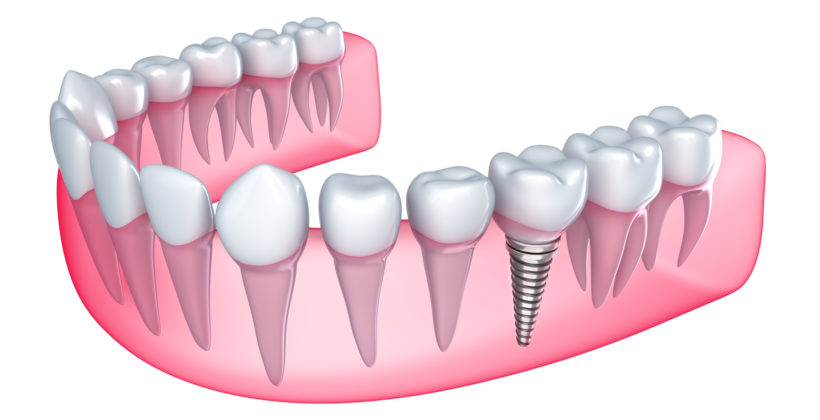Nearly all dental professionals agree that dental implants are one of the safest, most effective ways to replace missing teeth. For that reason, your dentist may have suggested them to improve the appearance of your smile or to secure your dentures. If that’s the case, you may have a lot of questions or not know exactly what questions to ask. Either way, this blog is for you!
In this blog, our dentist answers the five most frequently asked questions about dental implants. Topics include candidacy, cost, surgery, benefits, and risks.
1. Can I get dental implants after years of extraction?
Candidacy for dental implant surgery has little to do with when the tooth was extracted and more to do with overall oral and general health. However, the length of time a person has been without a tooth may impact their jawbone quality. If there isn’t enough bone mass in the jaw, the implants won’t have anything to hold on to—therefore, they won’t be effective.
But even this doesn’t completely disqualify you. The dentist (or a periodontists, prosthodontist, or oral surgeon) can perform a bone graft prior to dental implant surgery. The best way to learn if you are a candidate for dental implants is to schedule an initial consultation with a dentist.
2. What are the advantages?
Dental implants are so popular because of their many advantages. These include:
- Life-like appearance
- Improved speech
- Improved comfort
- Heightened self-esteem
- Better oral health
- Durability
- Easier eating
- May recover sense of taste
Compared to dentures and bridges, dental implants are much more durable, comfortable, and aesthetically pleasing.
3. Are there any risks involved?
With surgery, there is always risk, but dental implants are still one of the safest dental procedures with a 95-98 percent success rate.
Risks of dental implants include infection, reaction to medications, damage to other teeth or tooth roots, sinus infringement, and implant failure. People who smoke and those with certain medical conditions have a higher risk of experiencing these complications.
4. How much do implants cost?
This tooth replacement option is comparable to nearly every other option when it comes to cost if you consider how long they last. However, there isn’t a one-size-fits-all answer. The total cost will depend on the number of appointments, how many implants are needed, the dentist or oral surgeon you choose, and the cost of the restoration or prosthetic. If bone grafts are needed to restore the jawbone, that affects the price as well.
Typically, the cost for a dental implant ranges between $1,000 and $4,500. The good news is many insurance companies will cover some of the cost of the dental implant procedure. If you don’t have dental insurance, choose a dentist that offers in-house financing or accepts CareCredit®. This way, you don’t have to pay for the procedure upfront; you can make affordable, no interest monthly payments until it is paid off.
5. How long is the process?
Because dental implants require surgery and multiple appointments, the amount of time varies between a few months to more than a year.
During the initial consultation, the dentist creates a treatment plan that includes the estimated amount of appointments and time it will take to have your smile restored. Between treatments, patients can expect periods of healing.
Learn If Dental Implants Are Right for You
If you are interested in dental implants, contact a dentist near you today to schedule an initial consultation.
To meet with our Lombard, IL dentist, call 630-629-5700.

